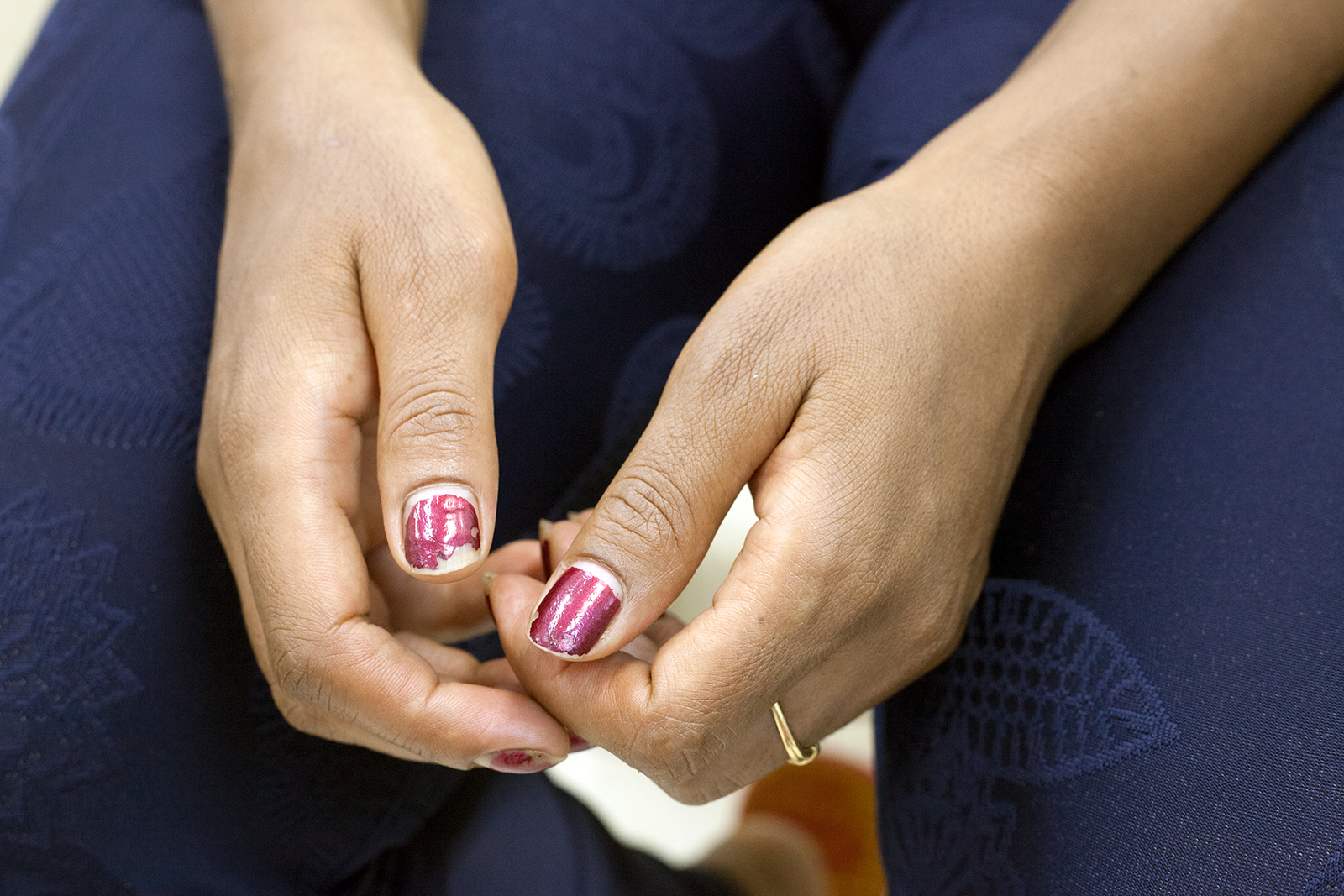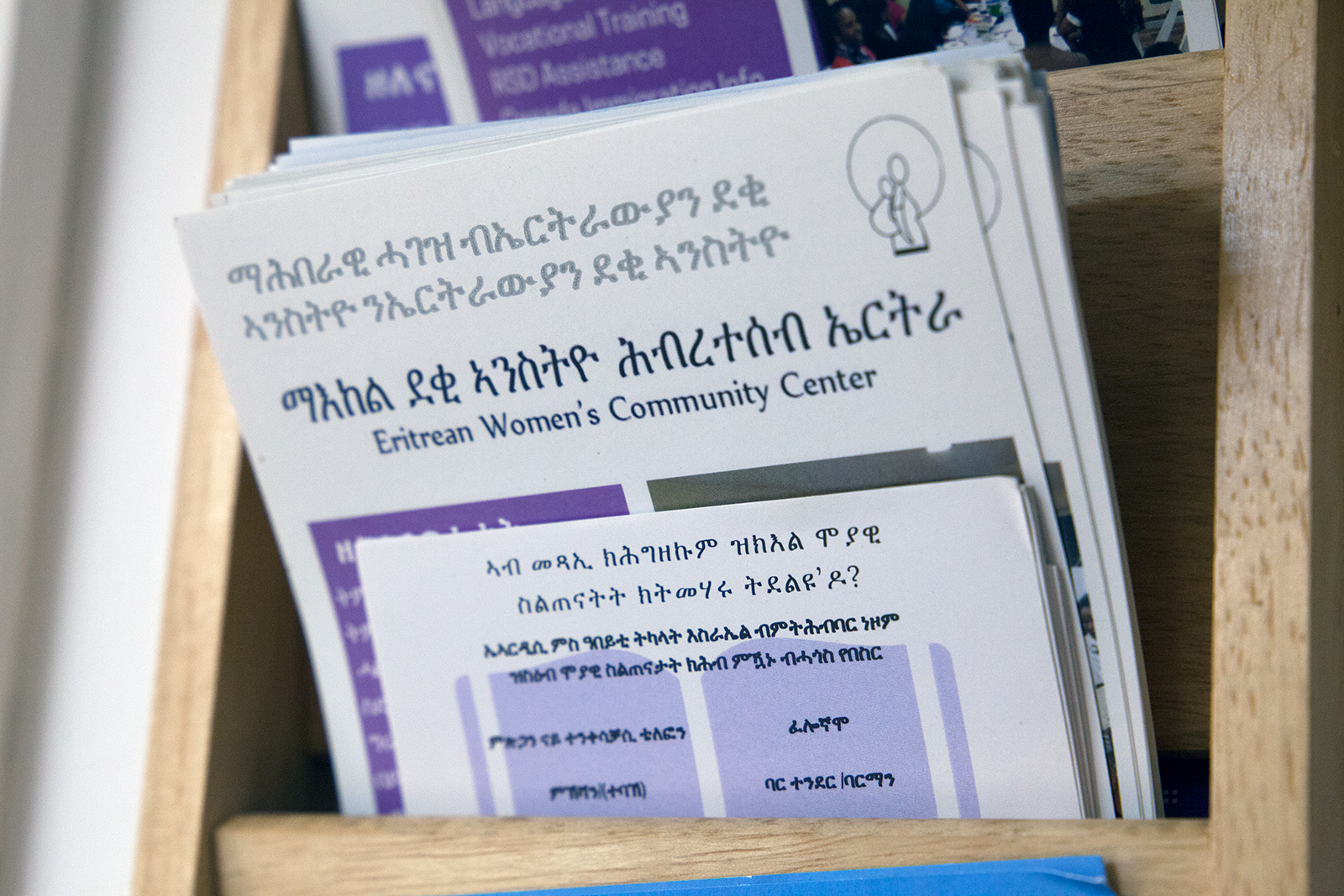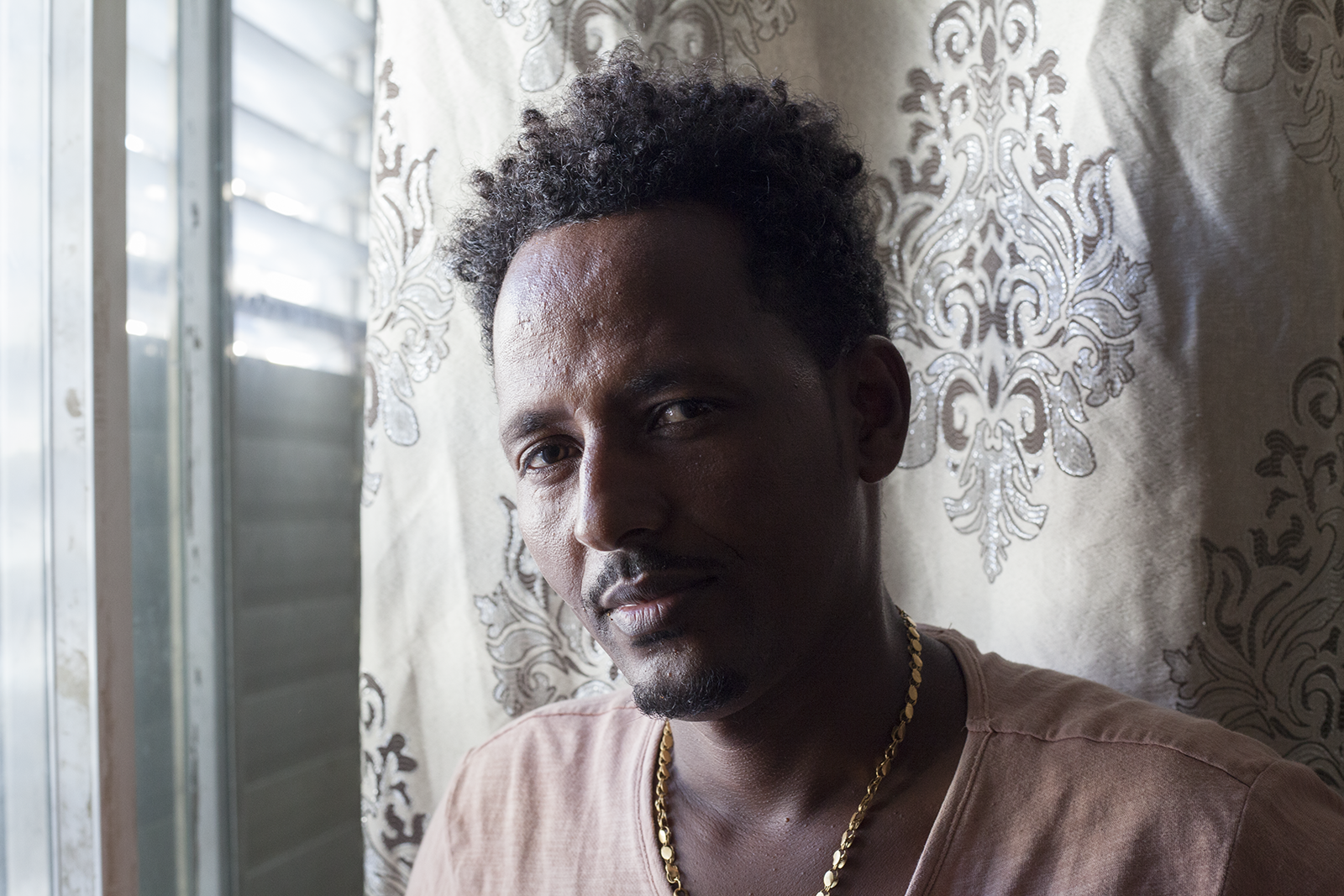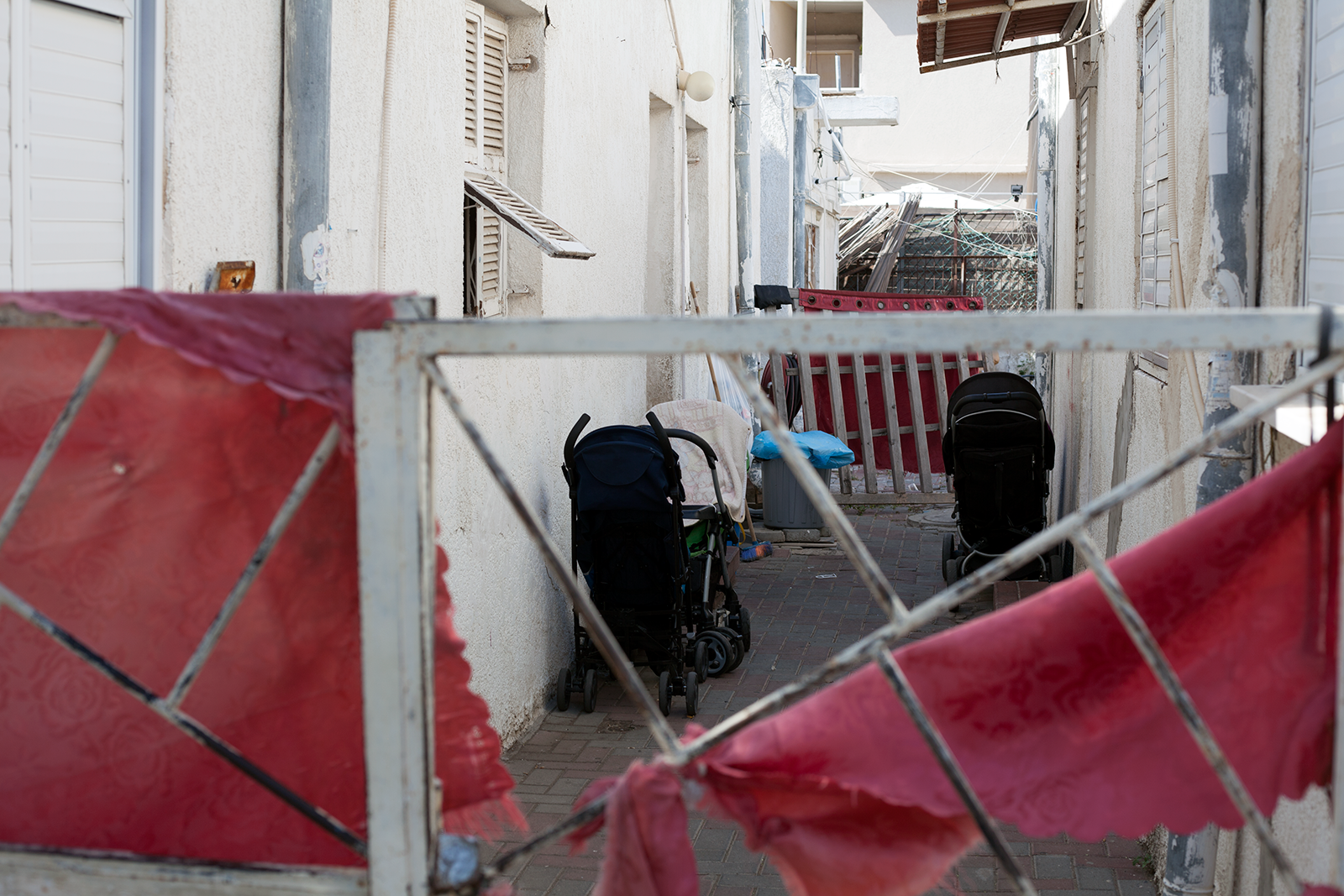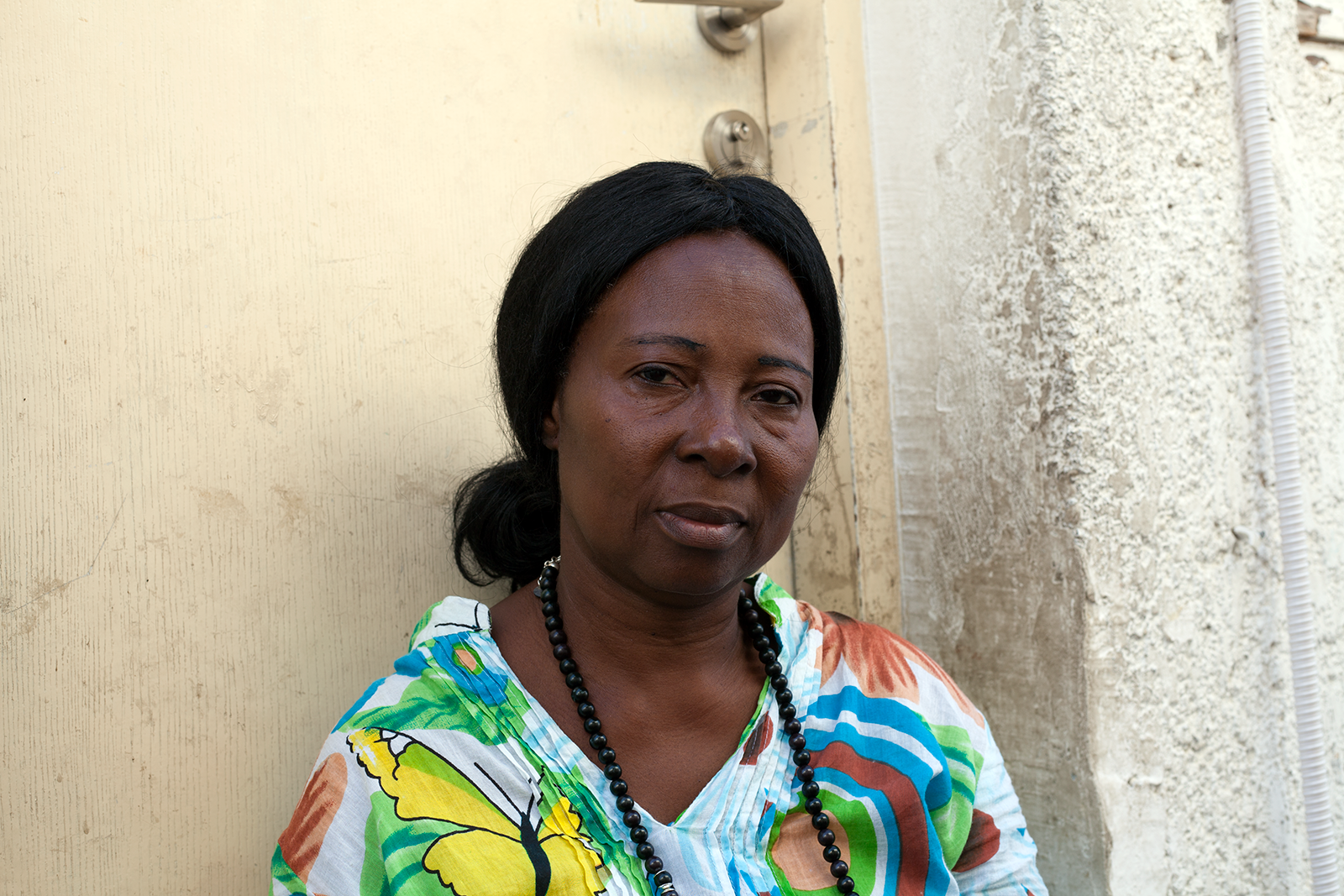Throughout my reporting this summer, I met a number of individuals within Tel Aviv’s Eritrean asylum-seeker community who shared their stories with me. The interview that I feel had the greatest impact on me was actually one of the first.
I met up with Rachel Berhane at a café in south Tel Aviv in early July. Rachel is a single mother with two young children, and she told me about the difficulty she faced trying to provide for her kids after sustaining an injury that prevented her from working.
Rachel works as a cleaner in private homes and is paid in cash. As an asylum seeker, this provides her with some degree of freedom, since 20 percent of her salary isn’t deducted from her paychecks when she is working unofficially. But this also makes it more difficult for her to receive assistance from worker’s rights organizations that provide help to people who have been injured on the job.
When we spoke, Rachel had been unable to work for over a month due to her injury, but she still volunteered her time as a translator for an aid organization once a week.
“Now I’m not working almost one month and a half because of my hand. I need to get help,” she said, while explaining her difficulty trying to get assistance from worker’s rights organizations.
According to Rachel, her visa says that she can’t legally work in Israel, which is why she initially sought out a cash-based income.
“If we are not working, how can we live?” she said. “Nobody helps us, it’s really, really difficult.”
Rachel shared her story of leaving Eritrea with her husband 10 years ago. She said that she didn’t choose to come to Israel, but simply traveled with her husband through Egypt and crossed from the Sinai into Israel to seek safety after fleeing their repressive government.
Rachel is Pentecostal and says her religion was one reason she chose to leave.
“In Eritrea there is no democracy, and you cannot believe [in] all religion[s],” she said. “I’m Pentecostal, you cannot believe in this religion [in Eritrea].”
The freedom to practice her religion in Israel allows Rachel a degree of independence.
“Here you can believe whatever you want,” she said. “But in our country [Eritrea], if you believe in Pentecostal, or if you speak about this, they will put you in prison.”
Over the past year asylum seekers in Israel have undergone a number of ups and downs, including ongoing talk of deporting asylum seekers to Rwanda or another third country. The confusion has left Rachel and others in similar positions feeling unwelcome in Israel, and questioning their future.
“I hope soon it will change,” Rachel said. “I feel not good, especially with the children, because they’re born here, they know everything here. When you deport us…it’s not good especially [for] the children.”
